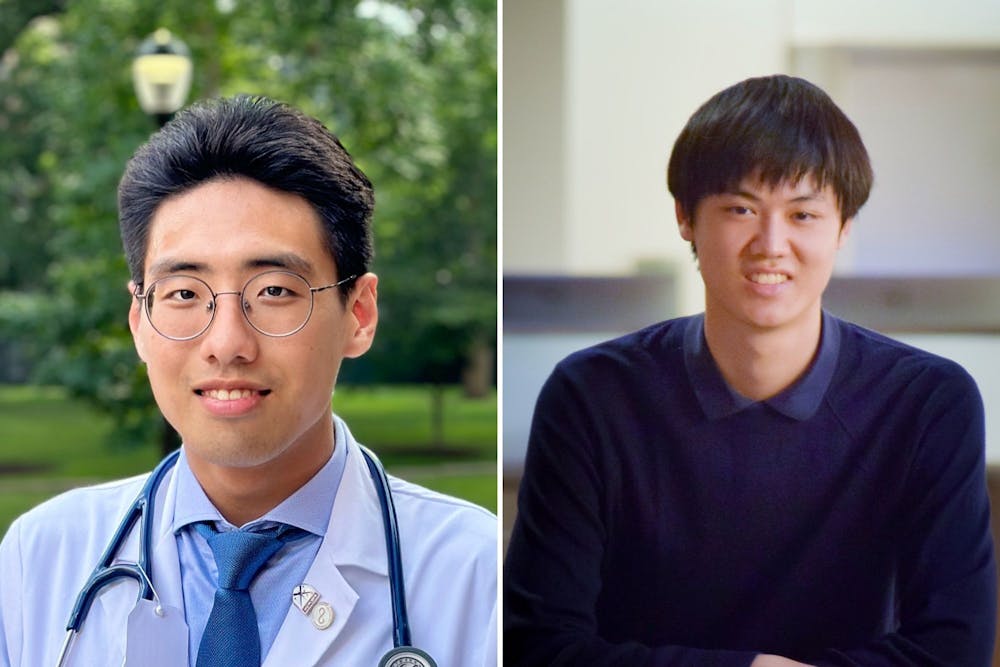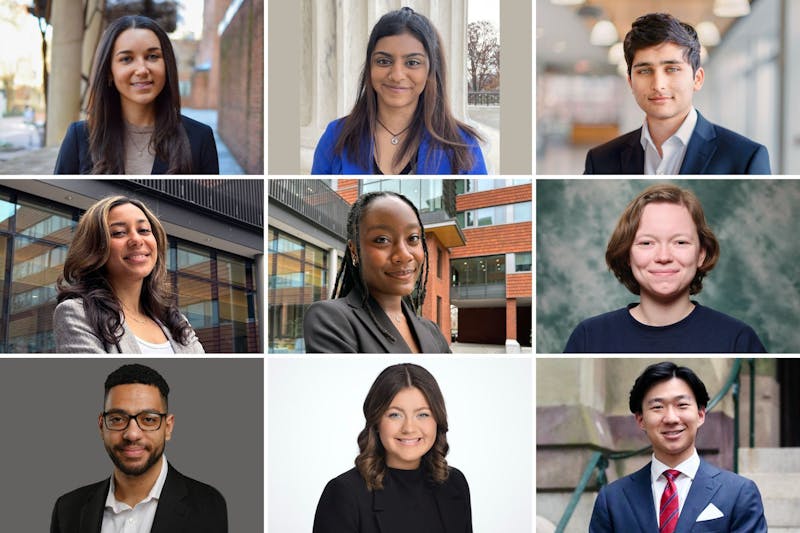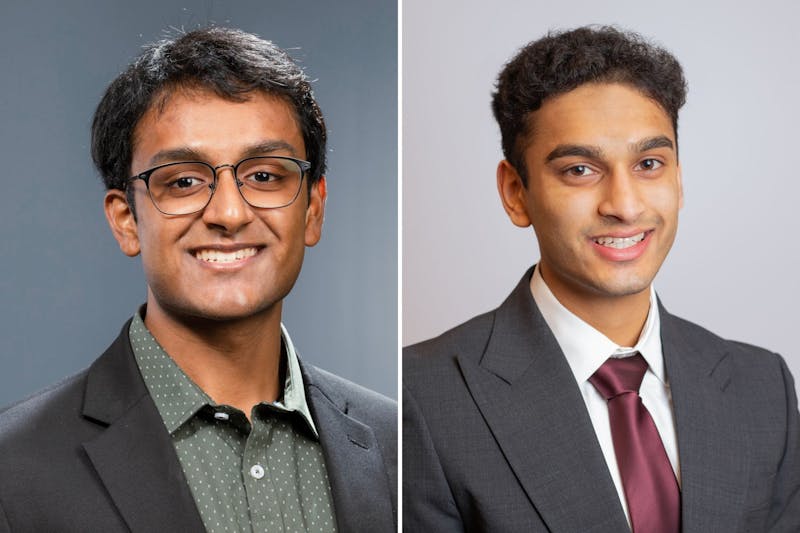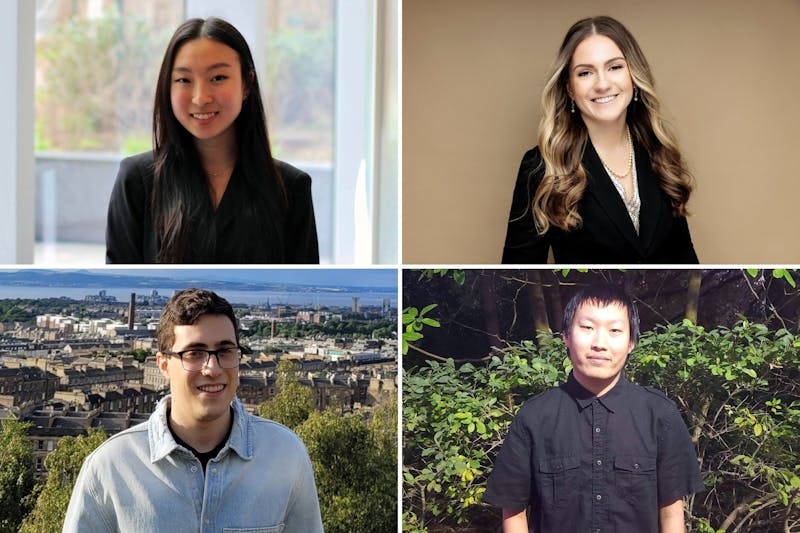
Two Penn students received the 2024 Paul & Daisy Soros Fellowship for New Americans, which offers up to $90,000 in graduate school funding for immigrants and children of immigrants.
Graduate student Min Jae Kim and College senior William Niu were among 30 fellows selected from around 2,300 applicants this year. Kim is pursuing a medical degree and Ph.D. in neuroscience at the Perelman School of Medicine, and Niu is a Roy and Diana Vagelos Molecular Life Sciences Scholar studying biochemistry, biophysics, and physics.
The fellowship, which first began in 1998, identifies "the most promising New Americans who are poised to make significant contributions to the nation through their work,” according to the website.
Kim immigrated to the United States from Korea at the age of 14 and attended high school in Fairfax, Va. In 2022, he graduated with a bachelor’s degree in biomedical engineering and neuroscience from Johns Hopkins University.
As an undergraduate, Kim worked for the neurology, neurosurgery, and psychiatry departments at the Johns Hopkins School of Medicine on clinical research and translational projects. At Johns Hopkins Hospital, he researched how brain circuits can become dysfunctional in different diseases, such as Parkinson’s and Alzheimer’s — and he has continued research in this area at the University. Kim has been published in over 18 medical journals and his work has earned him a Barry Goldwater Scholarship.
Kim said that he chose to pursue his graduate studies at Penn because of its “unique resources and opportunities.” He cited Penn Medicine neurosurgery professor Casey Halpern as a mentor who encouraged him to come to the University.
“Faculty members here at Penn are very accessible, and they’re very willing to help out,” Kim said. “This is coming even as a first-year medical student.”
Aside from neuroscience, Kim is also interested in engineering, and his research integrates both disciplines. He said that his neuroscience knowledge helps him recognize the different areas of the brain that govern different behaviors. Engineering methods help him “decipher” what is going on in different areas of the brain, and engineering skill sets allow him to “extract” the most pertinent information he can use for his research.
In the long run, Kim said that he hopes to continue his research and improve the use of minimally invasive therapies to help patients.
“My goal, with the help of my mentors and my training to come through my Ph.D. years, and through my medical school, is to understand how we can make this current platform better so that patients can have long-term benefits and actually modify the disease progression with our current technology,” Kim said.
Niu moved to the United States when he was eight, but he spent most of his childhood in Shanghai. At Penn, he co-founded Project Lucid, which is an initiative for students interested in improving their science communication skills.
Niu has served as a teaching assistant and peer educator at the University and has mentored students in STEM subjects at Philadelphia high schools. He researches at Bioengineering and Genetics professor Arjun Raj’s lab, which focuses on developing new methods for biomedical imaging analysis. Like Kim, Niu is also a Barry Goldwater Scholar. After Penn, he will be continuing his research at the Massachusetts Institute of Technology through its Ph.D. program, studying computational and systems biology.
This year’s fellowship class is the first to feature students with heritage from Portugal, Sierra Leone, and Zimbabwe. It is also the first to include students from schools such as the University of Central Florida, the University of Montana, Texas State University, and Virginia Commonwealth University.
Kim and Niu are the 23rd and 24th Penn students to receive the fellowship. Applications for the 2025 Paul & Daisy Soros Fellowship are currently open and close in late October.
The Daily Pennsylvanian is an independent, student-run newspaper. Please consider making a donation to support the coverage that shapes the University. Your generosity ensures a future of strong journalism at Penn.
Donate











